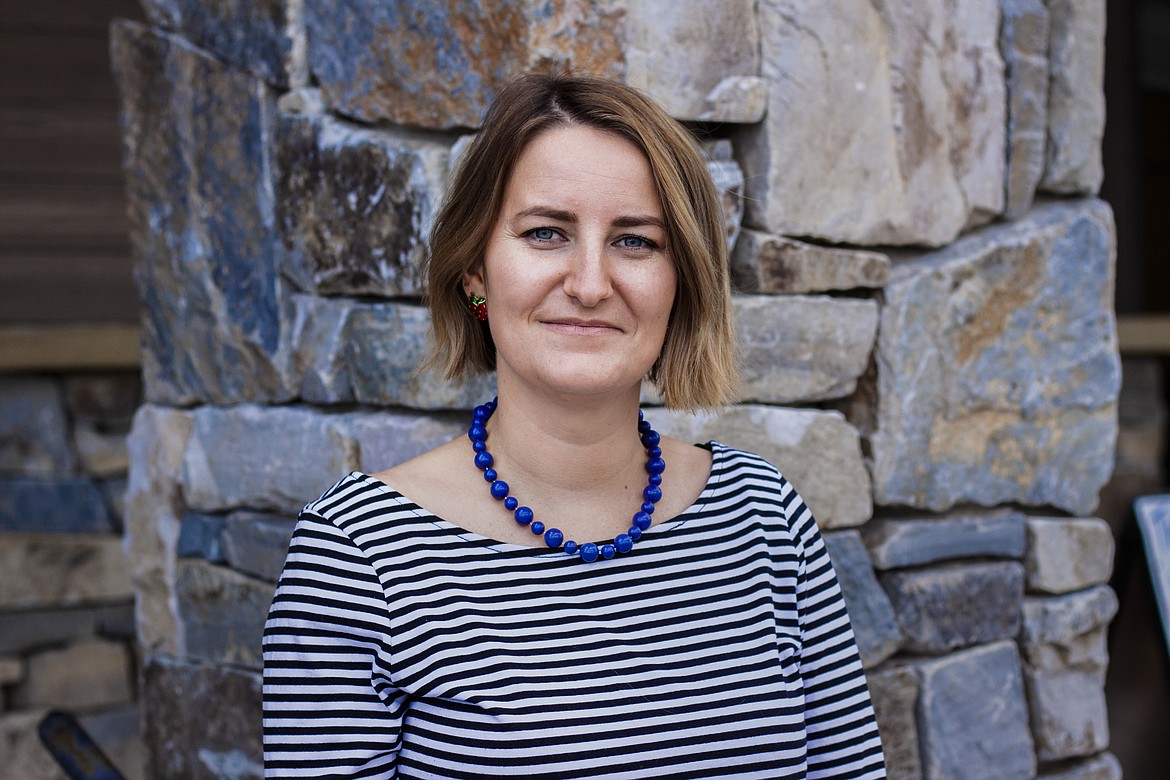In a Nutshell: Building on June’s legacy and the evolution of food banking
Sophie Albert | Whitefish Pilot | UPDATED 2 years, 7 months AGO
Last Friday, we celebrated our second annual Forever June Celebration and I have been reflecting on the history of North Valley Food Bank (NVFB) and the evolution of U.S. food banks.
Our beloved founder June Munski-Feenan started Whitefish Food Bank, as NVFB was called back then, in her garage in 1977. This was only ten years after the first food bank in the U.S., St. Mary’s Food Bank, was established in Phoenix, Arizona. Since then, the charitable food system, and the more than 61,000 food pantries in the U.S., have come a long way. Here in Whitefish, we continue to build on June’s legacy and the grassroots efforts of our community of volunteers. We are grateful for the many tireless food security advocates who made NVFB what it is today. Our free grocery store, for example, would not have been possible without the creativity of past board members and community volunteers and their efforts to improve food assistance. They advocated for client choice for many years and since last November, our customers obtained the freedom to choose the food they receive in our store.
Earlier this month, I joined the Montana Food Bank Network conference and listened to an inspiring keynote by Katie Martin, the author of Reinventing Food Banks and Food Pantries, a book that is timely and critical to our work. The Covid-19 pandemic has shown how inequality and social injustices exacerbate food insecurity. Ms. Martin provided an excellent analysis of how food banks can be part of a long-term solution of ending food insecurity by providing holistic services and advocacy. At NVFB, we have initiated this approach by providing client choice, a welcoming, people-centered environment and fresher, nutrient-dense food. One step at a time, we are transitioning our services from transactional to transformational by improving resource assistance and partnering with other local organizations that provide complementary services.
Reinventing Food Banks and Food Pantries further highlights that we should move away from the narrative of seeing food assistance as emergency response. Instead, we need to find long-term solutions that empower community members and support them on their way to self-sufficiency. Further, food banks need to measure their successes based on lives changed rather than pounds of food distributed. While federal programs and policy changes must be on the forefront to fixing food insecurity, I look forward to a time when local food banks raise awareness, become places of empowerment, and address the root causes of hunger. We want to ensure that our neighbors not only have access to food but that they can thrive, break generational cycles of poverty, and have access to affordable housing, fair wages and healthcare.
Ms. Martin provided an alternative perspective of the famous quote “Give a man a fish and you feed him for a day. Teach a man to fish and you feed him for a lifetime.” She explained that if we only teach a man to fish, we are not considering why he has to be taught and we are ignoring underlying issues like access to ponds stocked with fish, as well as the necessary equipment and supplies.
Thanks to everyone who came out to celebrate our community and 45 years of NVFB history. We believe that the best way to honor June’s legacy is to pay it forward and to continue serving our neighbors with compassion, respect, and dignity.
Sophie Albert is the executive director of North Valley Food Bank. Albert provides insights into happenings at the food bank, rural food insecurity, stories of the community and more in the monthly Whitefish Pilot column titled, In a Nutshell.


